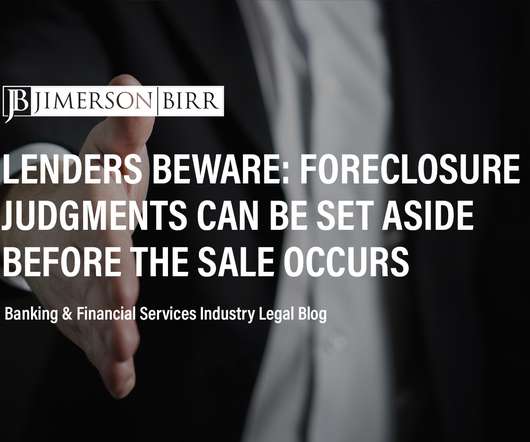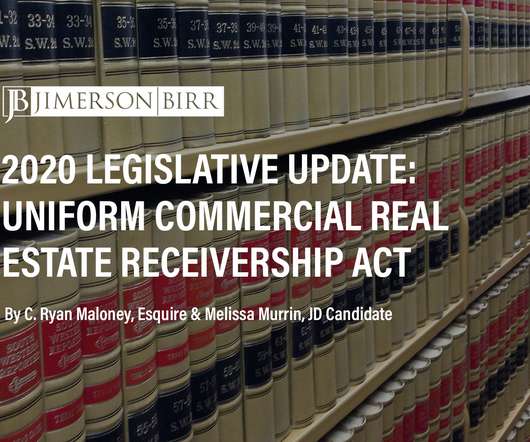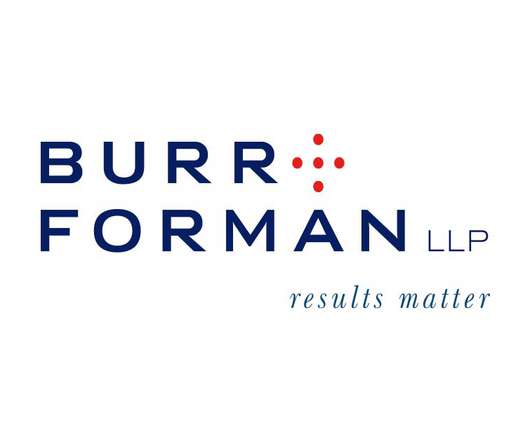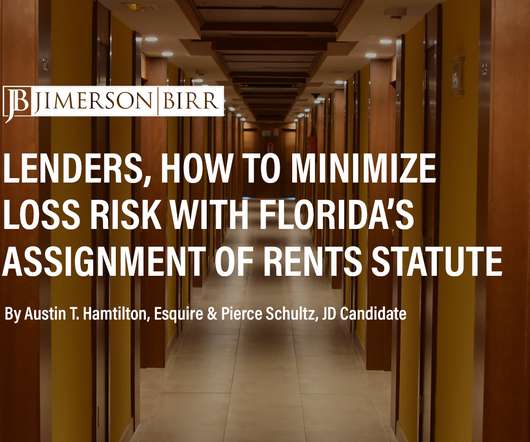Lenders Beware: Foreclosure Judgments Can be Set Aside At Any Time Before The Sale Occurs
Jimerson Firm
MAY 19, 2021
Although a lender may have won the battle by obtaining a final judgment of foreclosure from the court, it may not win the war. Although a lender may not be able to avoid this from happening, it should be aware of how and why their final judgment of foreclosure may be set aside. Why Would a Final Judgment of Foreclosure be Set Aside?

















Let's personalize your content